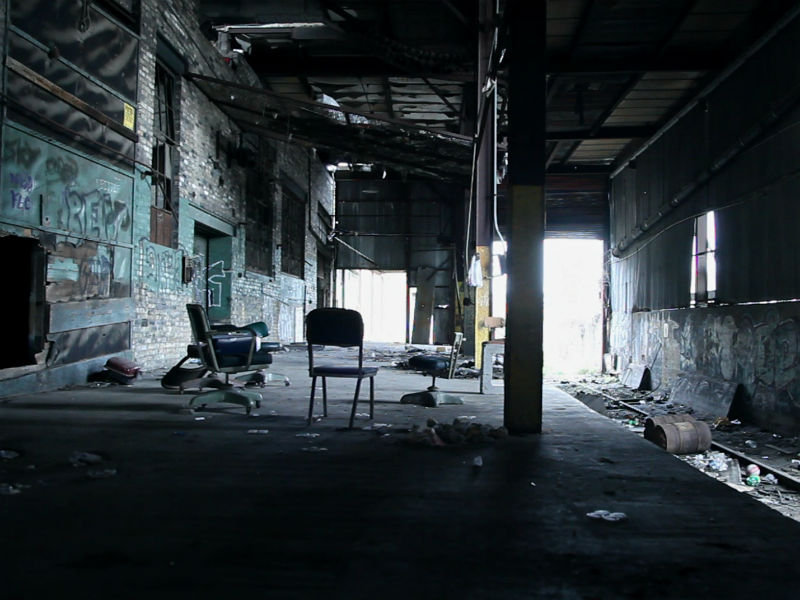For municipal court judge Derek Mosley, homelessness is a problem he sees almost every day. Routinely people are caught in violation of the law and have to pay a fine with money they don’t have. And thus a cycle begins – of jail, of more violations, of more fines, of more jail and of achieving nothing for either party.
"The court system is full of people who don’t have a place to stay, for reasons that have nothing to do with them," Mosley said. "It could be mental problems. Some are alcohol and drug problems; some are just bad luck. We’re a court system that functions on forfeitures, so we walk that fine line every day to make sure I’m not locking you up because you’re poor."
It’s something former federal agent Faith Kohler knows about, as well. While working in law enforcement, Kohler would volunteer at a local homeless shelter.
"Sometimes I would just visit with people; other times, I was looking for something productive to do that would more affirmatively help them," Kohler recalls. "I found that a lot of them had questions about their open warrants or how to get their child custody reinstated or how to handle landlord-tenant situations."
Over the course of helping the homeless network with other attorneys and get answers to their questions, Kohler got increasingly intrigued about the stories she was hearing, the problems they were facing, and the legal and systemic woes that helped contribute to them all.
In 2009, Kohler’s two goals – to share their stories and experiences with the world and to affirmatively help those in trouble – dovetailed together into something seemingly much different from her past federal work: filmmaking. Over half a decade later, the end result, a feature-length documentary titled "30 Seconds Away: Breaking the Cycle," is finally bringing those stories and potential solutions to the big screen tonight at 6:30 p.m. at the Oriental Theatre as a part of the Milwaukee Film Festival’s Cream City Cinema program.
The film – completed with the help of a successful Kickstarter campaign earlier this summer – chronicles the immensely complex problem of homelessness from multiple angles and perspectives, from those actually living on the streets trying to find and create a steady life for themselves, to the police tasked with trying to help while also enforcing the law, to the legal stages – such as Judge Mosley’s courtroom – where these real-life dramas often play out with no real end or resolution in sight.
It’s a massively scaled story with tons of difficult questions, few answers and nuanced points to be made from all sides – in other words, no small or easy task for a first-time filmmaker. Luckily, according to Kohler, her past federal agent work actually prepped her for the immense issue she wanted to tackle with "30 Seconds Away."
"Some of the investigations that I did were big, complex fraud investigations that took years to unwind, so I guess I’m not a stranger, coming out of government, to long process to see what develops as we work each step of it," Kohler explained. "I kind of see ’30 Seconds Away’ as being the culmination of years of gathering information. It was hearing what everybody thought and then putting those pieces together in a way that allowed audiences to make their own decisions and draw their own conclusions.
"It was very cool," she continued. "I’m a process person. I break things apart, I analyze what the pieces are and then I put them back together in a way that is meaningful, that shows something or tells something. That’s really, for me, what directing this film was."
Kohler admits there were some points of the filmmaking process that she wasn’t entirely prepared for – namely hearing and seeing many of her subjects’ tragic stories, situations and worlds unfold in front of her camera.
"Some of the moments and people that we saw and recorded were just gut-wrenching," Kohler said. "Staying clinical is very difficult when you’re dealing with people. Trying to stay detached was probably the most challenging thing."
Luckily, since Kohler began filming "30 Seconds Away" back in 2009, much has changed in terms of Milwaukee and its homeless population. Back in 2010, the Milwaukee Police Department started a homeless outreach team, something that Kohler notes has "grown exponentially over the last few years" and has increased the amount of trust between police and homeless. There’s also the launch of the Housing First program, a housing model which provides immediate access to permanent housing with additional wraparound case management support services, based on the idea that a homeless person's most pressing and primary goal is stable housing.
"When you see someone who’s been living under a bridge next to the river for three and a half years, who’s really, really in need, move into an apartment and sleep in a bed for the first time in three and a half years, to me, that’s a change," Kohler said. "That’s progress."
As for the courtrooms of Judge Mosley and others, many work with a group called JusticePoint, which helps identify defendants who may be homeless and help identify the underlying issue that may be causing the problem, whether it be drug abuse, alcoholism or some other condition. Then the defendant participates in an alcohol or drug problem in lieu of paying a fine they can’t pay.
"Every day that somebody sits in jail, taxpayers pay for that," Mosley said. "You’re not going to prosecute your way out of this by jailing people, so we have to find alternative ways to break the cycle."
While the homelessness problem in Milwaukee – as well as the entire country – is far from completely solved and is still in need of support, these are programs and steps in the right direction. And Mosley and Kohler hope "30 Seconds Away" can be just one more foot forward.
"It’s all about services, and if we can bring awareness to the fact that there are services out there, or that we need to fund these services – and I get it; people don’t want their taxes to go up, but those are the things that fund these programs – that’s what we’re trying to do," Mosley said.
"I think we all have very preconceived notions about what homelessness is," Kohler added. "I want this film to blow away all the stereotypes that all the people walk into the theater with, and I want to challenge the way they look at homeless people and ask themselves what they can do to end homelessness in our community. And it’s not just a Milwaukee issue; it’s a national issue."
"30 Seconds Away: Breaking the Cycle" screens two more times during the Milwaukee Film Festival: Friday, Oct. 2 at 3:30 p.m at the Times Cinema and Tuesday, Oct. 6 at 9:45 p.m. at the Avalon Theater.
As much as it is a gigantic cliché to say that one has always had a passion for film, Matt Mueller has always had a passion for film. Whether it was bringing in the latest movie reviews for his first grade show-and-tell or writing film reviews for the St. Norbert College Times as a high school student, Matt is way too obsessed with movies for his own good.
When he's not writing about the latest blockbuster or talking much too glowingly about "Piranha 3D," Matt can probably be found watching literally any sport (minus cricket) or working at - get this - a local movie theater. Or watching a movie. Yeah, he's probably watching a movie.







